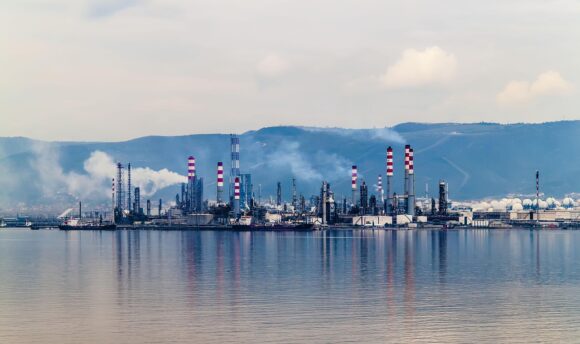Insure Our Future campaigners made coal one of the dominant issues at the recent annual general meetings of insurance companies. Here is a brief summary of new policy announcements from the current AGM season:
France
AXA has committed to apply its 2017 divestment policy to all third-party assets managed by AXA IM by the end of the year, and has committed to consider strengthening its exclusion of coal-fired power plant developers. Today, AXA’s criteria for excluding these companies does not cover companies with as much new coal capacity as India and South Africa combined
SCOR has committed to exclude stand-alone insurance and facultative reinsurance coverage to all new coal plants worldwide. In 2017, SCOR ended such coverage for new coal mines but only for new lignite plants. SCOR became the second worldwide reinsurer to end all facultative reinsurance for new coal projects, after Swiss Re, who made this commitment in 2018. But contrary to the Swiss reinsurer, SCOR failed to commit to tackle the issue of treaty reinsurance, which is critical to support the coal phase-out.
However, none have committed to follow Allianz’s example and phase out all underwriting and investment support for coal by 2040, in line with climate science and the objectives of the Paris Agreement. SCOR justified itself by stating that “fossil fuels are necessary for the development of countries in the South”, and AXA stated “we could not live without fossil fuels”.
Germany
Munich Re committed last summer to no longer insure any new constructions of coal-fired power plants or coal mines as single risks in developed countries or in the majority of emerging markets, allowing a few exceptions in countries where a significant proportion of the population (over 10%) does not yet have access to electricity. During the AGM Munich Re confirmed that they assessed three coal projects under the exception rule, none of which was finally (re)insured. They defended the continued insurance of existing coal plants and mines, ignoring the fact that our demand is not to have coal plants run without insurance but to shut them down. When asked whether they would add other fossils to their exclusion list, they explained that they are discussing internally what carbon-free 2050 means for investments and underwriting when planning backwards and how to report on progress regarding this goal.
Allianz failed to commit to apply its coal policy to assets managed for third parties but said the company was “looking into this”. For now, Allianz’s main approach is to expand their sustainable public funds. On the other side, Allianz announced they want to invest all their assets climate neutral by 2050.
Hannover Re announced in April the exclusion of underwriting for new coal plants and mines, leaving no coal risks in their portfolio by 2038. However, they explicitly allow exceptions in countries with a high coal dependence. When asked about the exceptions, they explained that they would allow only very limited exceptions “in extreme cases”, only if a new coal plant would not lead to an increase in coal percentage in electricity while reducing CO2 emissions (following the logic of a very dirty coal plant being replaced by a less polluting plant, without looking into the many more years a new plant will run). In the case of e.g. a single risk Polish mine, they would not reinsure. The CEO said “he had difficulties imagining that Hannover Re would reinsure e.g. one of the new Turkish coal plants”.
Talanx, the parent company of Hannover Re, announced the same policy in April. However they were clear that Poland qualifies for exceptions from their policy. They would not give any further information on other countries, and invited us to judge them on the basis of exceptions actually granted. Talanx is a big, but still minority (47-49%) shareholder in the Vietnamese insurer PVI, which is a significant insurer for Vietnamese coal plants. When asked about the relevance of their policy in this company, they said that they would enter into a dialogue with PVI about coal insurance, but made it clear that they would not sell their share if the majority owners of PVI chose to stick with reinsuring coal.
Italy
Generali ruled out insurance for all existing coal mines in Poland, including for the controversial Turów coal mine in Poland which is also insured by Ergo Estia (Munich Re) and TuIR Warta (Talanx). However, the insurer offered no information on the extent to which the policy will cover stand-alone and package insurance contracts, a key detail which will determine the impact of the policy.
Generali also announced that it has cut ties with two of the six companies it has been engaging with regarding climate change concerns, but did not specify which ones. In response to questions about PGE and CEZ, the President of Generali confirmed the companies are not among those excluded, because the insurer believes they are committed to diversifying their energy mix. In fact, both companies are expanding their coal assets and could not be considered having a credible plan for a transition away from coal. Generali should exclude them both from any coverage to honour its commitments made in November 2018.
Australia
QBE announced a new coal exit policy in April. On May 9, the Australian insurer said that the policy was a “living document”, which could still be strengthened for example in terms of covering tar sands and other fossil fuels.



